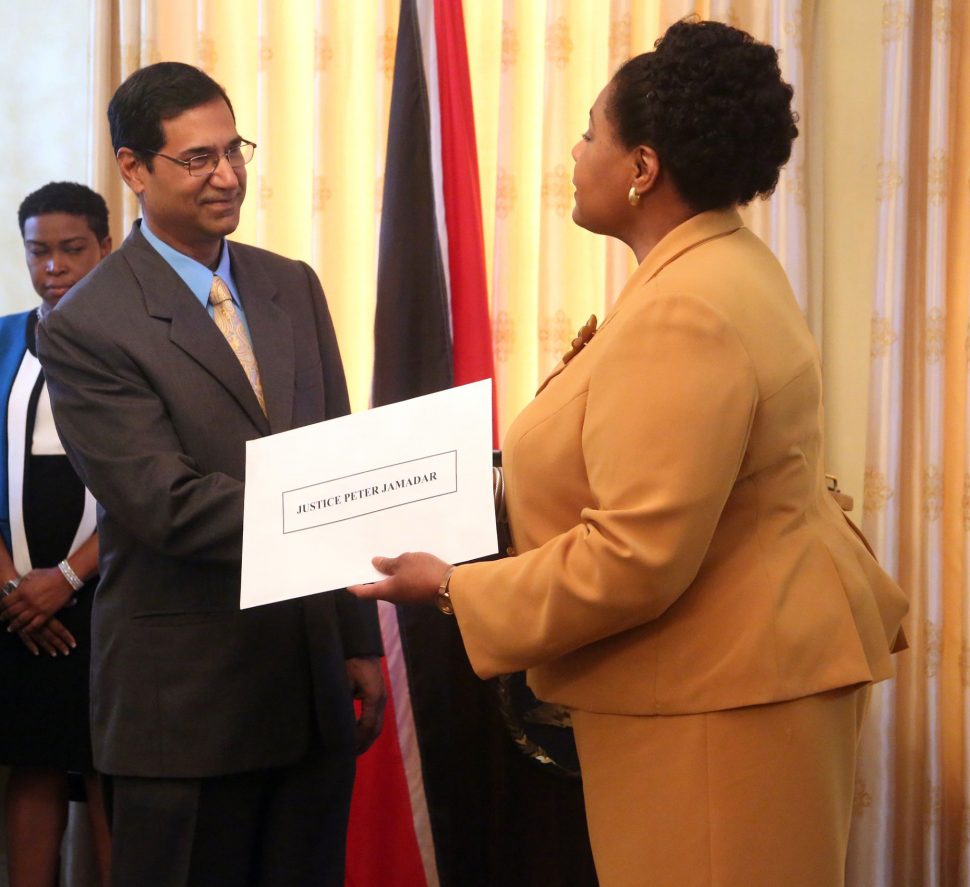(Trinidad Guardian) The unwillingness of citizens to support moves to make the Caribbean Court of Justice (CCJ) this country’s final appellate court is directly linked to a lack of trust and confidence in the local Judiciary.
Former Appeal Court Judge Peter Jamadar made the comment while responding to questions from Guardian media after he was sworn in as a CCJ judge during a ceremony at The Cottage at President’s House, on Thursday.
Jamadar said: “Why would members of the population, who since Independence have been hesitant and ambivalent about the local judiciary, be able to take this leap and have confidence in a CCJ when its personnel comes from the region?”
Jamadar, who is the fourth T&T judge to be elevated to the CCJ since former Chief Justice Michael de la Bastide was appointed as the first CCJ President in 2004, also stated that citizens’ negative perception of the CCJ could not be linked to the court’s ability to adequately replace the Judicial Committee of the Privy Council.
“I don’t think there is a question about competency, sovereignty, financial capacity, effectiveness, efficiency or timeliness. It may be there but I think they may be relatively minor,” he said. Referring to an approval rating poll of government agencies, conducted last year,
Jamadar noted that the Judiciary was among the lowest-ranked.
“That is a significant matter that has to be addressed. That is for you all to interrogate and discover why that is so,” Jamadar said. While he admitted that the challenges facing the Judiciary are well known, he said that solutions are needed to be found.
“I don’t think I need to say that those challenges impact not only those in the community but its membership. The real question I think is really, how do we construct or reconstruct a Judiciary that has necessary all the values in a democratic society,” Jamadar said.
Asked whether the Judiciary was better off when he joined in 1997 or now, the judge chose a diplomatic response.
“When I joined the Judiciary, I joined under the Chief Justiceship of Mr Michael de la Bastide. We were young and enthusiastic. He (de la Bastide) was an amazing leader. He motivated us, encouraged us and I believe that inspiration positively infected the senior judges in the Judiciary right now,” Jamadar said.
Asked whether his appointment would help dispel public criticism over an apparent lack of ethnic diversity on the CCJ, Jamadar said yes.
“All international courts recognise that if there is to be justice for all people, all must feel that the court is their court,” Jamadar said.
Speaking at the function, CCJ President Adrian Saunders noted that Jamadar was selected from a pool of candidates from Australia, Botswana, the United States, the United Kingdom and other Caribbean countries.
“His judgements are erudite, well reasoned, demonstrate a high intellect, a deep understanding of Caribbean society and an abiding sense of fairness,” Saunders said. Saunders also warned Jamadar of what to expect in his new role.
“I must warn you, you would be required to hit the ground running as both the volume and complexity have been steadily becoming greater,” he said.






